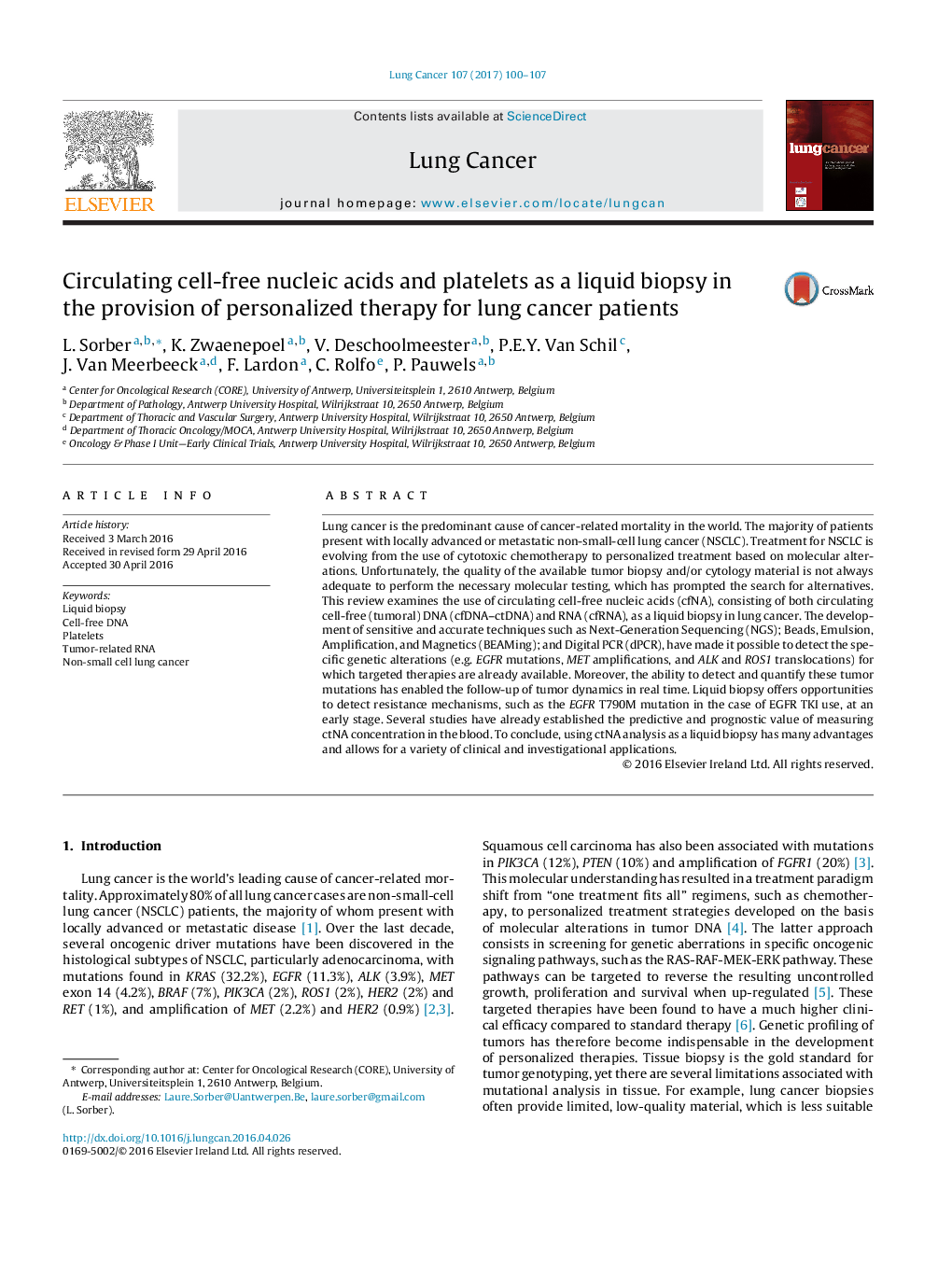| Article ID | Journal | Published Year | Pages | File Type |
|---|---|---|---|---|
| 5528110 | Lung Cancer | 2017 | 8 Pages |
â¢Tissue and Liquid Biopsy can be combined in the provision of personalized therapy.â¢We discuss the clinical applications of cfDNA as a Liquid Biopsy.â¢We highlight the potential of tumor-educated platelets and tumor-related RNA.â¢An overview of the various and newly developed ctDNA analysis platforms.
Lung cancer is the predominant cause of cancer-related mortality in the world. The majority of patients present with locally advanced or metastatic non-small-cell lung cancer (NSCLC). Treatment for NSCLC is evolving from the use of cytotoxic chemotherapy to personalized treatment based on molecular alterations. Unfortunately, the quality of the available tumor biopsy and/or cytology material is not always adequate to perform the necessary molecular testing, which has prompted the search for alternatives. This review examines the use of circulating cell-free nucleic acids (cfNA), consisting of both circulating cell-free (tumoral) DNA (cfDNA-ctDNA) and RNA (cfRNA), as a liquid biopsy in lung cancer. The development of sensitive and accurate techniques such as Next-Generation Sequencing (NGS); Beads, Emulsion, Amplification, and Magnetics (BEAMing); and Digital PCR (dPCR), have made it possible to detect the specific genetic alterations (e.g. EGFR mutations, MET amplifications, and ALK and ROS1 translocations) for which targeted therapies are already available. Moreover, the ability to detect and quantify these tumor mutations has enabled the follow-up of tumor dynamics in real time. Liquid biopsy offers opportunities to detect resistance mechanisms, such as the EGFR T790M mutation in the case of EGFR TKI use, at an early stage. Several studies have already established the predictive and prognostic value of measuring ctNA concentration in the blood. To conclude, using ctNA analysis as a liquid biopsy has many advantages and allows for a variety of clinical and investigational applications.
